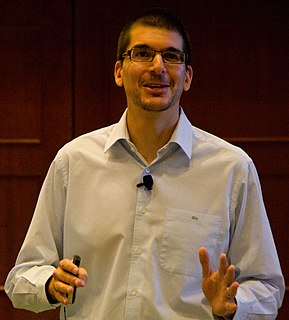A Quote by Peter L. Bernstein
What if I am wrong? Any rational investment plan has to start with that question.
Related Quotes
No matter what you do, any country in the world is going to have the ability to set its own rules internally. Any country in the world can pull the plug. It's not a question of technical issues, it's not a question of right or wrong, it's not a question of whether global Internet governance is right or wrong. It's just with us.
When you look at any experimental work not directly related to economics, but trying to test rational behavior in other ways, experiments have conspicuously failed to show rational behavior. Macro evidence certainly suggests deviations from rationality, but I don't want to say the rationality hypothesis is completely wrong. If you have any introspective idea or experimental idea about people's behavior, it seems to be incompatible with the really full scale rational expectations.
It's all emotion. But there's nothing wrong with emotion. When we are in love, we are not rational; we are emotional. When we are on vacation, we are not rational; we are emotional. When we are happy, we are not [rational]. In fact, in more cases than not, when we are rational, we're actually unhappy. Emotion is good; passion is good. Being into what we're into, provided that it's a healthy pursuit, it's a good thing.
There is no question that an important service is provided to investors by investment companies, investment advisors, trust departments, etc. This service revolves around the attainment of adequate diversification, the preservation of a long-term outlook, the ease of handling investment decisions and mechanics, and most importantly, the avoidance of the patently inferior investment techniques which seem to entice some individuals.
Raymond Aron ascribes to Weber the view that 'each man's conscience is irrefutable.' ... while [Weber] holds that an agent may be more or less rational in acting consistently with his values, the choice of any one particular evaluative stance or commitment can be no more rational than any other. All faiths and all evaluations are equally non-rational.
The question is not about whether it will work or not. It's how quickly we can pull it off. Structural change will happen. When economies grow, there comes a time when you cannot rely on investment alone. We had that. The return on investment is becoming less and less. So we have to change. The old model doesn't work anymore. It's a question of speed.




































